The year 2023 will go down in history as difficult for humanity. Yet Ipas teams around the world persevered, landing important victories for abortion access and expanding reproductive justice in partnership with activists, health workers, educators, community leaders and more.
We’re preparing to do even more in the year ahead. Here are eight photos that show a sampling of Ipas’s recent work in action—with notes about how we’ll continue and grow our impact in 2024.
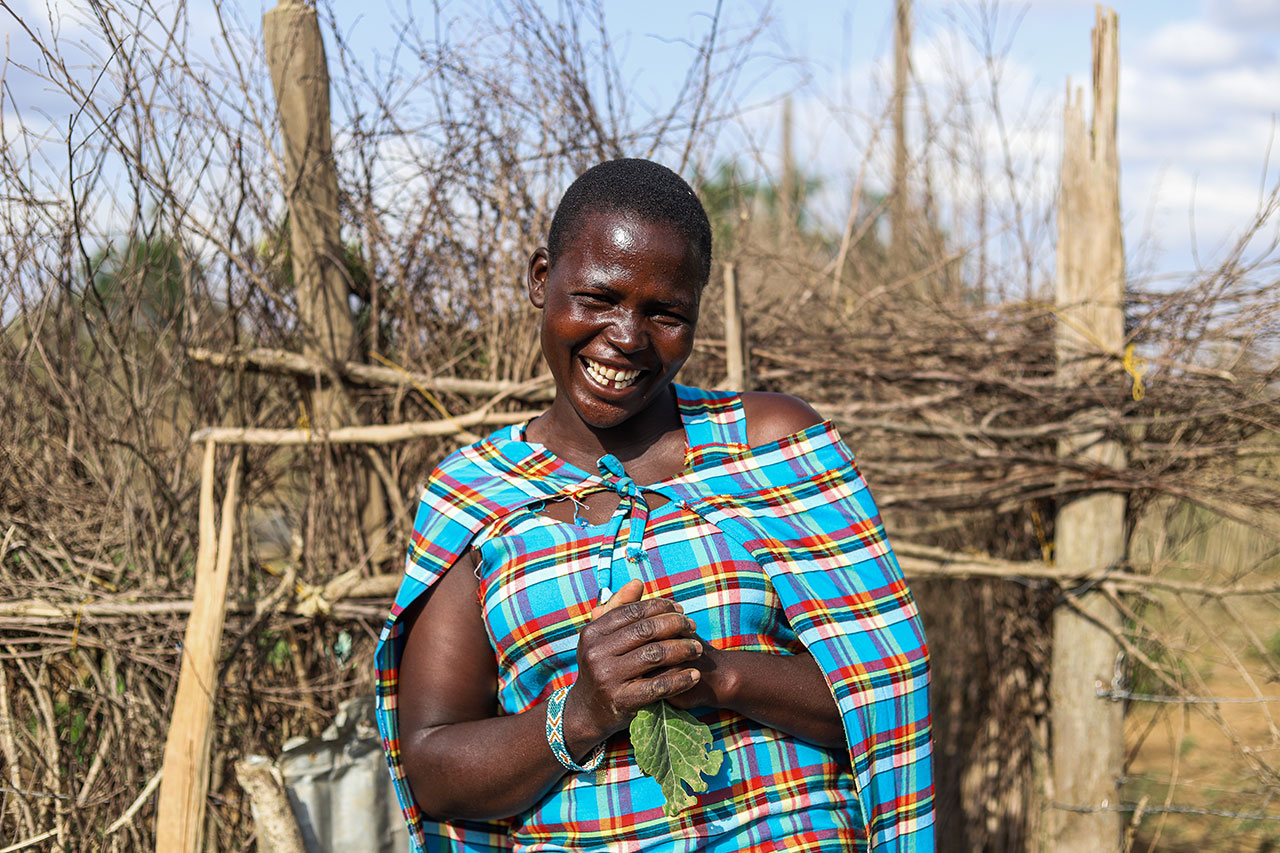
Photo by Esther Sweeney for Ipas
1. Fueling innovative climate change solutions
In northern Kenya, Ipas partnered with local group PACIDA to tackle the impacts of climate change on reproductive rights. The solutions—generated by the people most affected—are helping build resilient communities. Through this project, Julietta Lekinasia (above) traveled to learn how other women are successfully farming in their arid region. Learning to grow gardens close to home during a drought helps women avoid long walks for food and water that can put them at risk of sexual violence.
Now, Ipas and PACIDA are conducting research on the local health system’s ability to provide sexual and reproductive health care during future climate events, like droughts and floods, to improve local climate change policy. In 2024, Ipas teams will work with local partners to build women-led climate solutions that include reproductive health—in places like Kenya, Nepal, Malawi, Bangladesh, Mozambique, Bolivia and more.
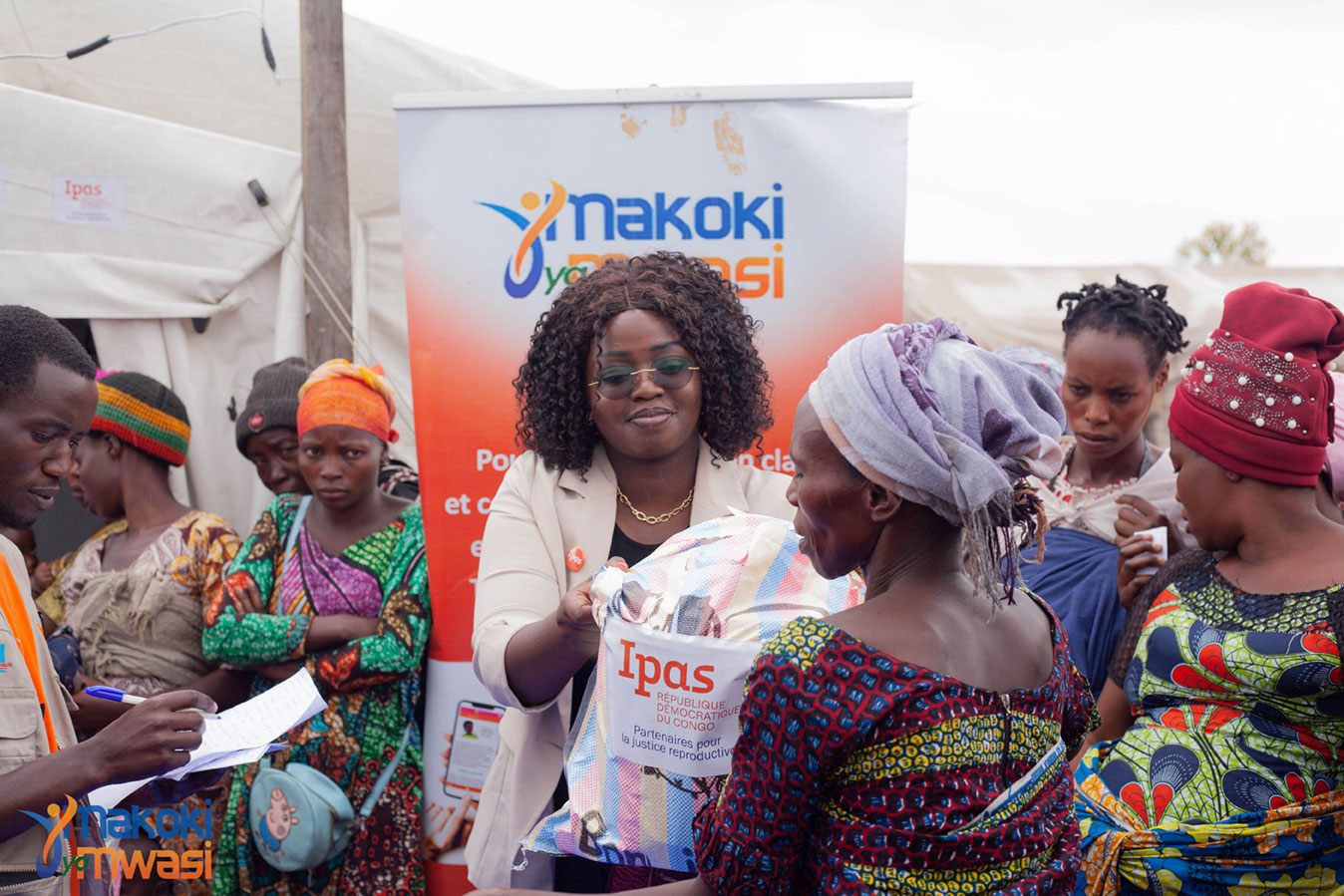
© Ipas DRC
2. Bringing abortion care to crisis settings
No matter the cause, humanitarian crises often mean an increase in sexual and reproductive health needs—yet access to safe abortion remains one of the most forgotten of those needs. Ipas Democratic Republic of Congo (DRC) is making sure that abortion care is included in response efforts for people displaced by the devastating armed conflict in North Kivu. Above, Ipas’s Dr. Celestine Buyibuyi handed out supplies to residents of a displacement camp where Ipas organized a mobile health clinic.
Temporary Ipas-supported clinics in camps have provided treatment for sexual violence and sexually transmitted infections, comprehensive abortion care, and contraception. In 2024, as conflict continues in DRC—and humanitarian crises affect people in many places where Ipas works—we’ll continue to ensure that essential reproductive health care is available to those who need it most.
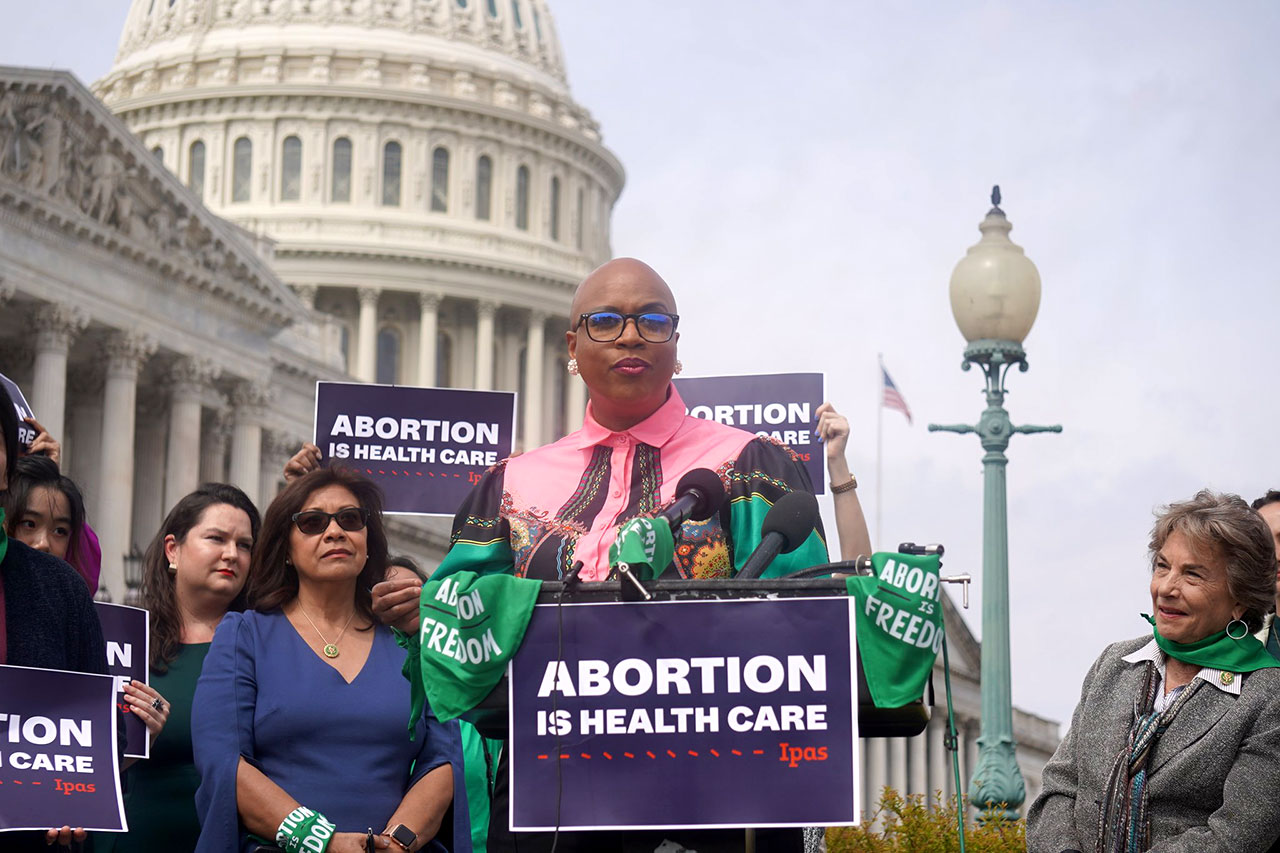
Ipas photo
3. Ending the harms of U.S. foreign policy
On March 22, 2023, in Washington, D.C., Senator Cory Booker (D-NJ) and Representative Jan Schakowsky (D-IL) reintroduced the Abortion is Health Care Everywhere Act in the U.S. Senate and House of Representatives. Here, Representative Ayanna Pressley (D-MA) speaks at an event for the bill’s reintroduction.
The bill would repeal the Helms Amendment, which restricts the use of U.S. foreign assistance for abortion “as a method of family planning.” In practice, the policy has been implemented as a complete ban on abortion, even in countries where abortion is legal. Ipas has been fighting against the vast harms of this amendment for as long as we’ve existed. In 2024, we’ll continue to advocate with our diverse coalition of partners to advance this bill and finally end the injustices of the Helms Amendment.
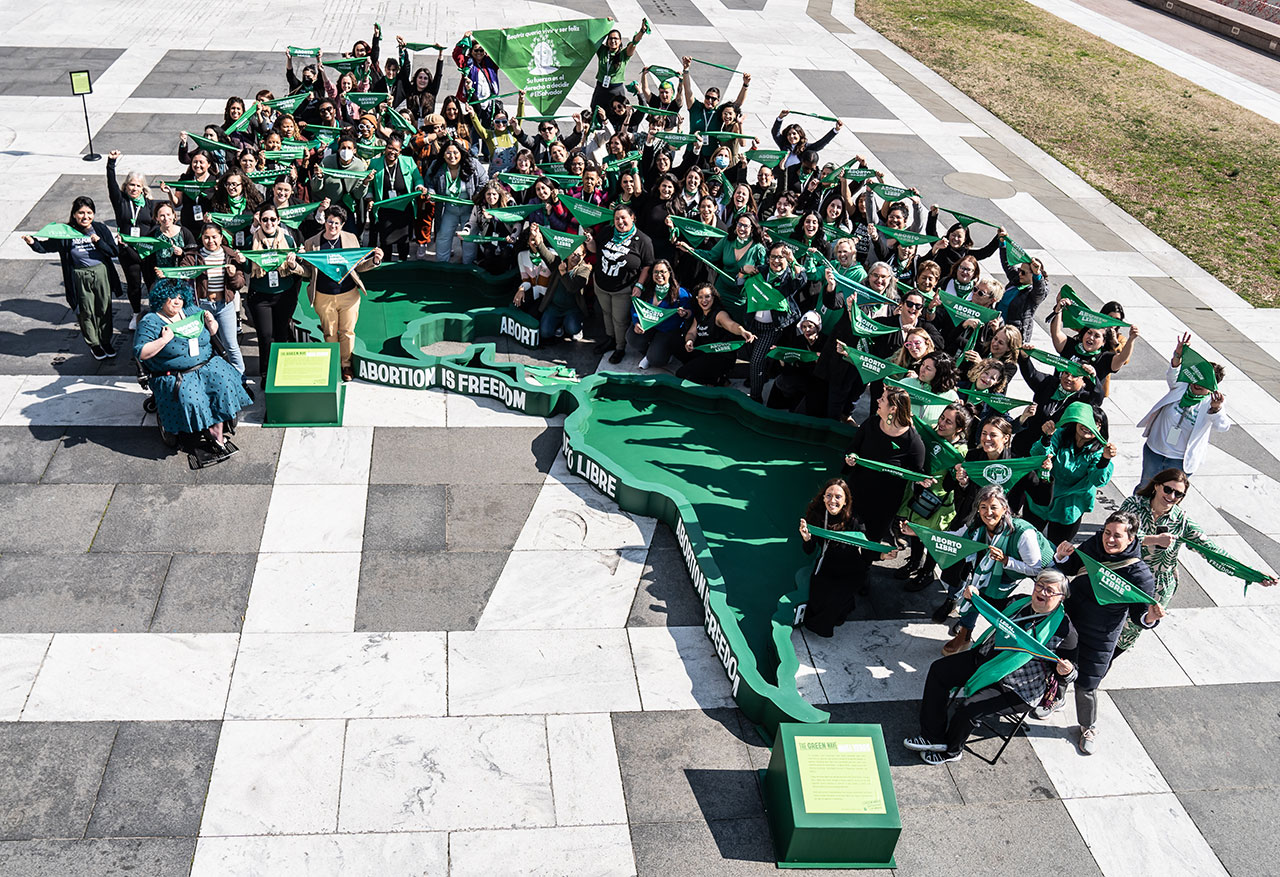
Photo by Dee Dwyer
4. Learning from the Green Wave movement
Ipas is bringing our global expertise and network of abortion access experts to the United States, where abortion bans are causing a human rights crisis. In February 2023, Ipas partnered with Women’s Equality Center and National Latina Institute for Reproductive Justice to host a historic “Green Wave gathering.”
For three days in Washington, D.C., abortion rights leaders and activists from the United States met with and learned from leaders and activists involved in Latin America’s Green Wave feminist movement that has driven abortion law reform across the region (participants above with their green bandanas, the now-famous symbol of the movement). Activists from many Latin American countries shared strategies for policy change and grassroots movement building. In 2024, we’ll continue to bring together abortion rights leaders from across the Americas to build strategies for U.S. law change that will secure abortion rights for the next generation.
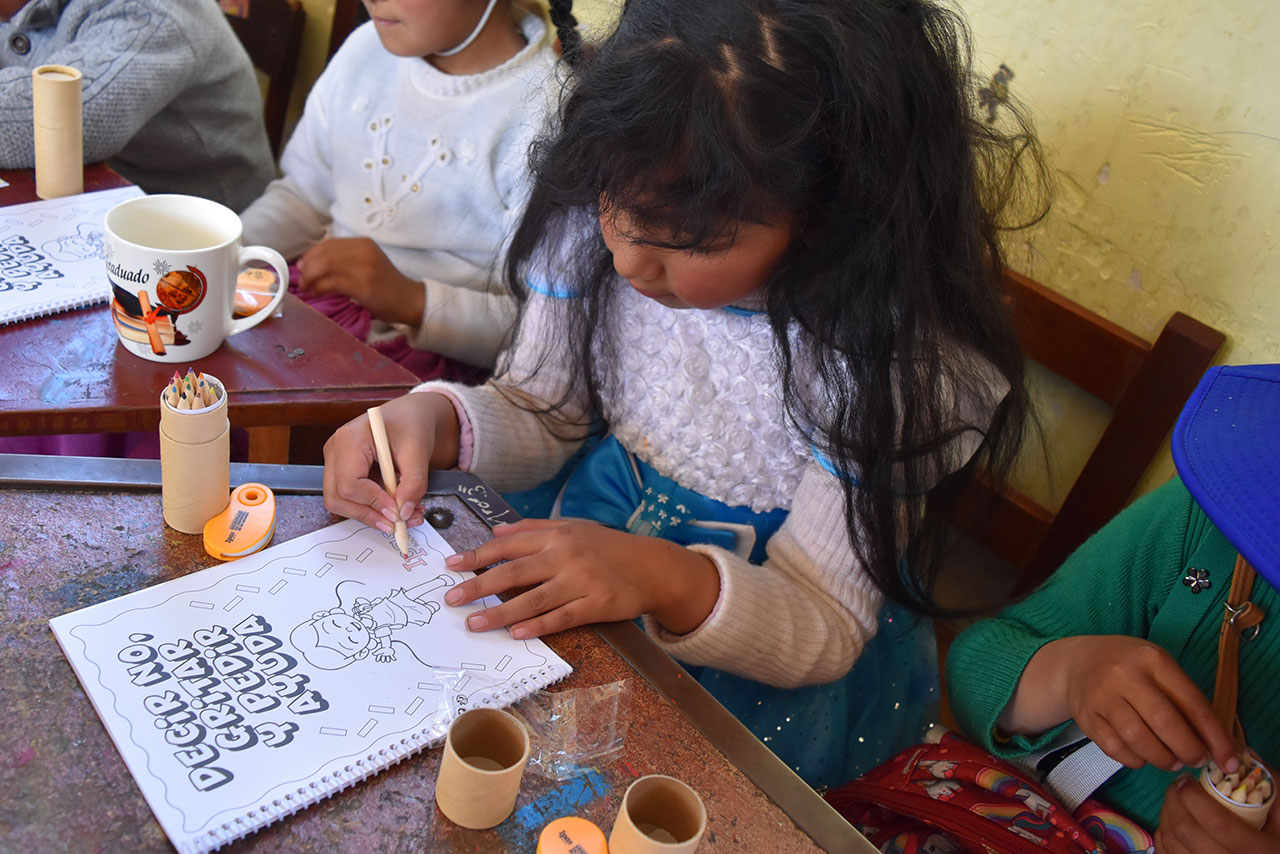
© Ipas Bolivia
5. Preventing sexual violence through education
Ipas Bolivia coordinated with the El Alto Network for the Prevention of Sexual Violence to launch its latest campaign to prevent sexual violence against children. In two schools in the city of El Alto, Ipas Bolivia presented an educational children’s play as well as provided school supply kits with educational materials the students could take home.
“This campaign uses educational approaches that we know work—things like theater, art, and an informative coloring book they can keep with them—to teach children about complicated and sensitive issues like preventing sexual violence,” said Malena Morales, director of Ipas Bolivia. In 2024, Ipas will work with local partners across Asia, Africa and Latin America to educate young people on sexual and reproductive health, how to protect themselves from sexual violence, and how to access health services when needed.
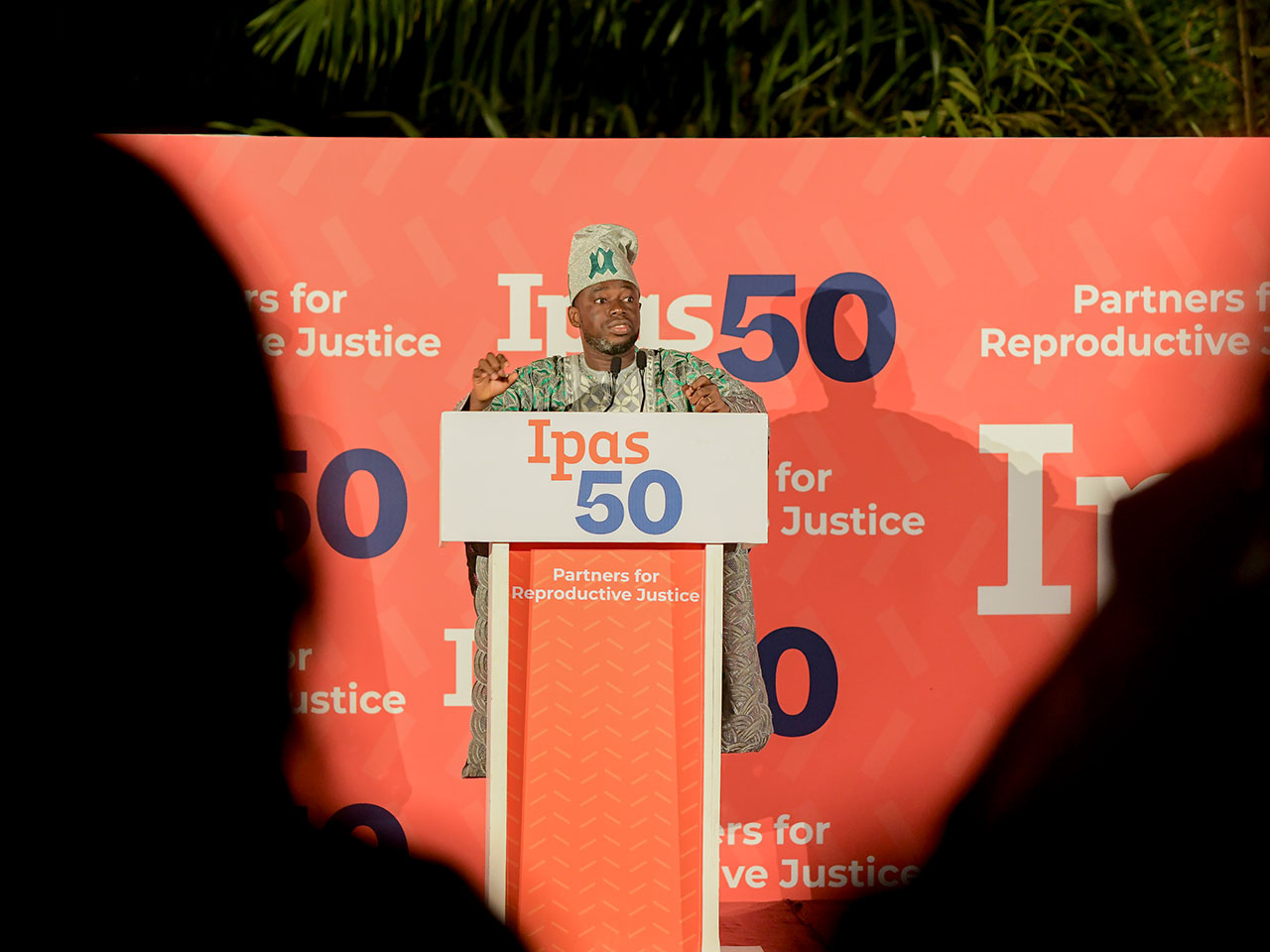
Ipas photo
6. Building movements for abortion rights
“As a youth representative, I encourage Ipas to continue to support the youth movement so that we can work together with partners to advocate for abortion services,” said Dr. Béniel Agossou, a sexual and reproductive health and rights youth advocate from Benin. He spoke at Ipas’s 50th anniversary celebration at the Women Deliver Conference held in Rwanda in July 2023.
Ipas Francophone Africa supported a movement of diverse champions for abortion rights in Benin who helped achieve law change to expand abortion access. In 2024, Ipas will continue supporting this movement, as well as train and support abortion rights activists in countries around the world as they build their own movements.
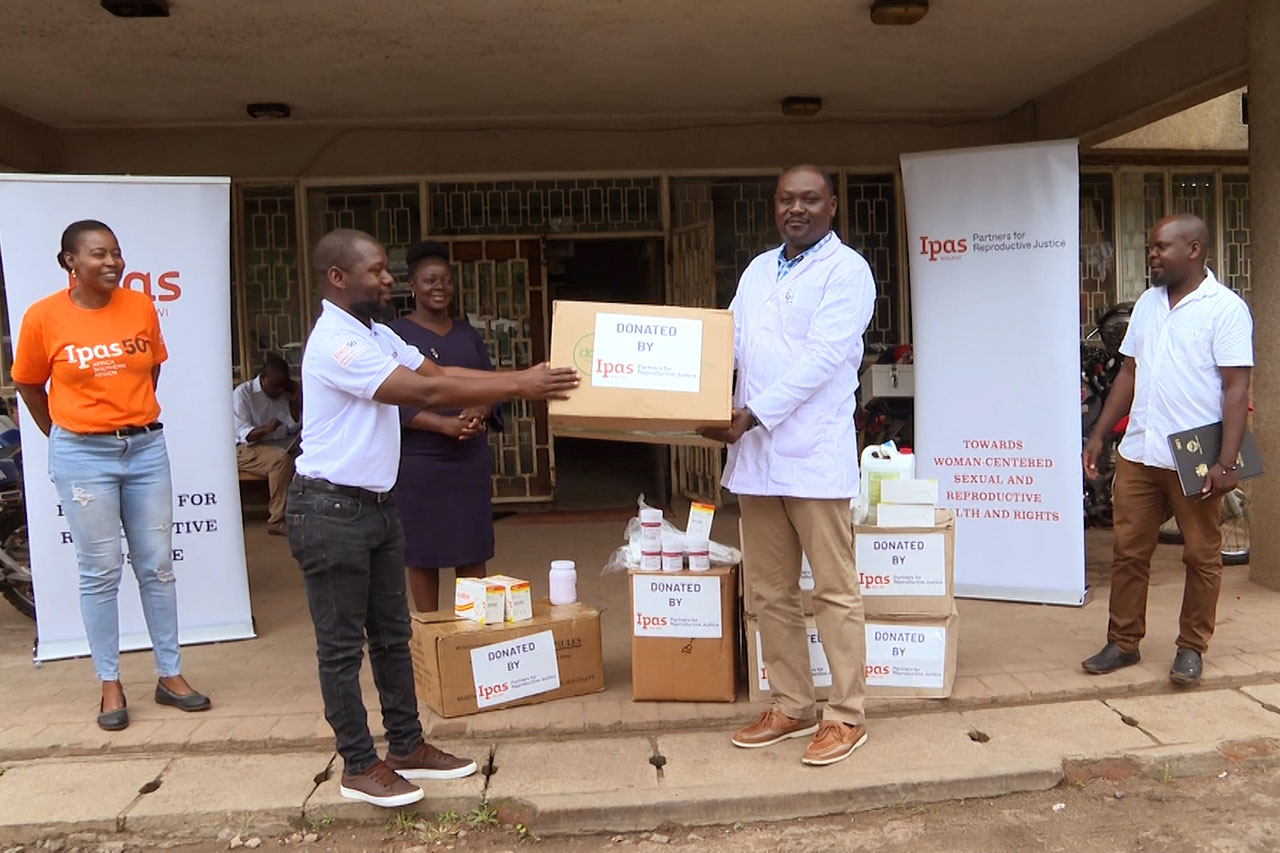
© Ipas Africa Southern Region
7. Ensuring reproductive health care is part of climate disaster responses
When Cyclone Freddy raked across southern Malawi in the spring of 2023, more than 650,000 people were displaced from their homes. Knowing that women and girls are disproportionately affected by climate disasters like this cyclone, Ipas Malawi drew on its established programs, expertise and strong relationships across the health system and communities to make an immediate impact.
After the storm, Ipas was able to quickly deploy assistance to women and girls who were displaced and living in temporary camps. Pictured above, Ipas delivered essential sexual and reproductive health supplies to clinics it supports. In 2024, Ipas will continue leveraging our local partnerships and programs—in Malawi and wherever else climate disasters strike—to ensure people can still get the reproductive health care they need.
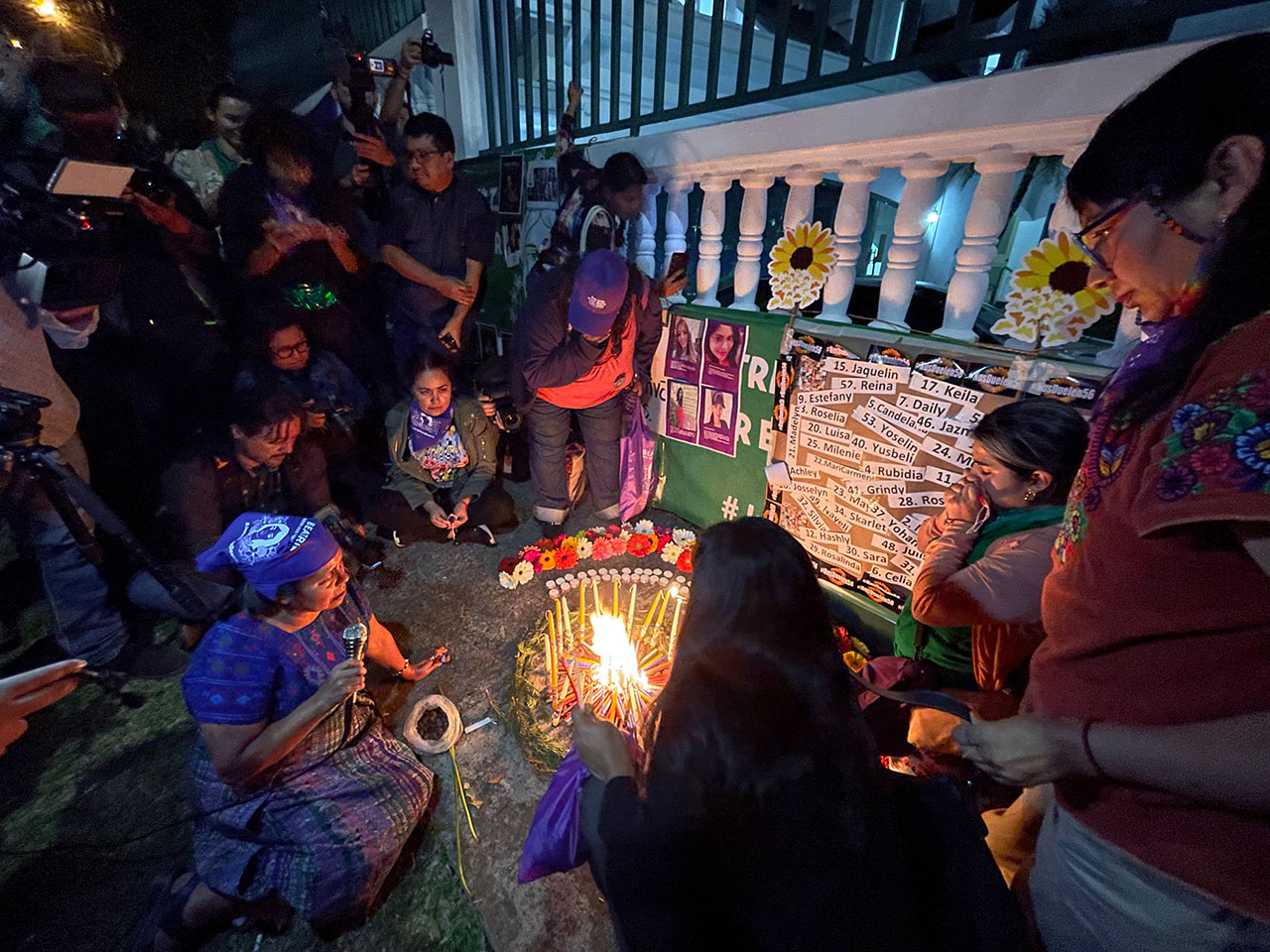
© Ipas Ipas Latin America and the Caribbean
8. Fighting to end human rights violations caused by abortion bans
Reproductive rights advocates across Latin America, including Ipas, have long been demanding justice for Beatriz. A young mother in El Salvador (where abortion is banned), Beatriz suffered grave harm when denied an abortion needed to save her life. In March 2023, the Inter-American Court on Human Rights held a hearing on whether El Salvador’s abortion ban violated her human rights (a ruling is expected soon). Pictured above, supporters of justice for Beatriz held a vigil outside the court hearing.
Ipas’s Dr. Guillermo Ortiz was formerly an OB-GYN in El Salvador who oversaw Beatriz’s case. He testified at the hearing that the abortion ban prevented him from giving his patient the life-saving care she needed. In the U.S., doctors are now facing similar situations in states that have banned abortion. In fact, United Nations experts recently declared that U.S. abortion bans violate human rights, in response to testimony from Ipas and partners. In 2024, Ipas will continue to shine a light on the serious harms that result from abortion bans—and to advocate for laws that protect reproductive rights.

